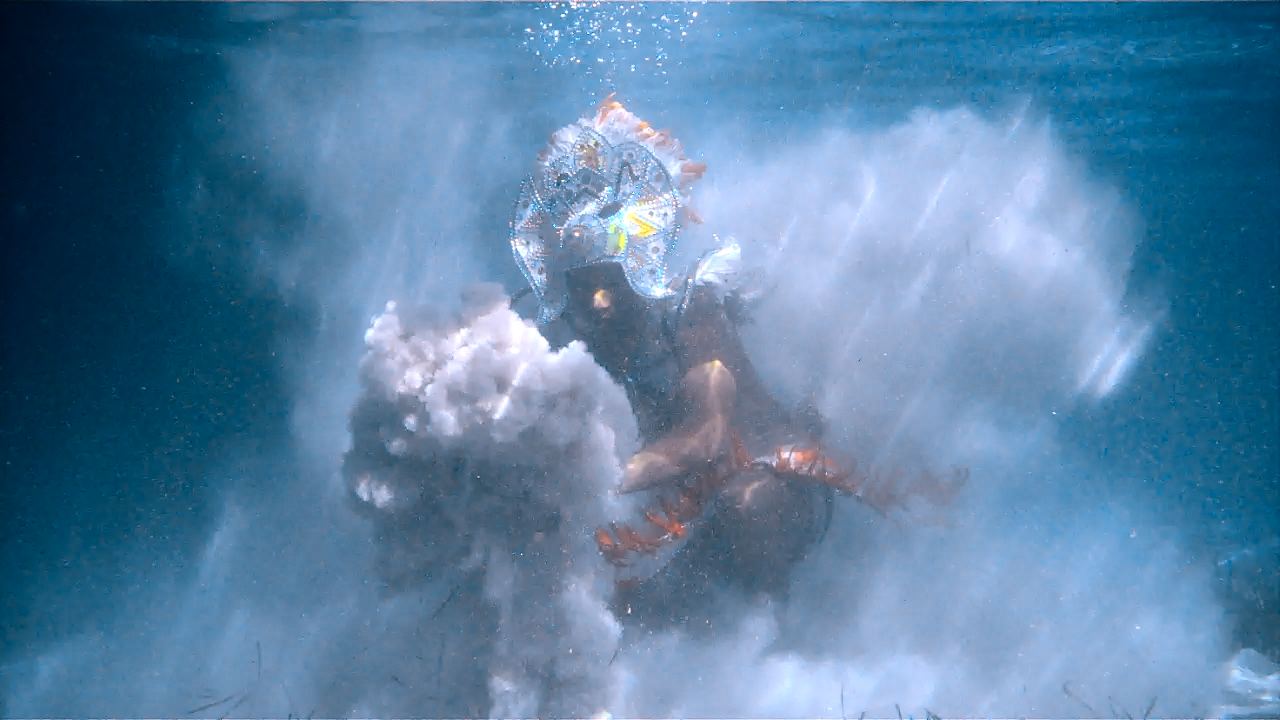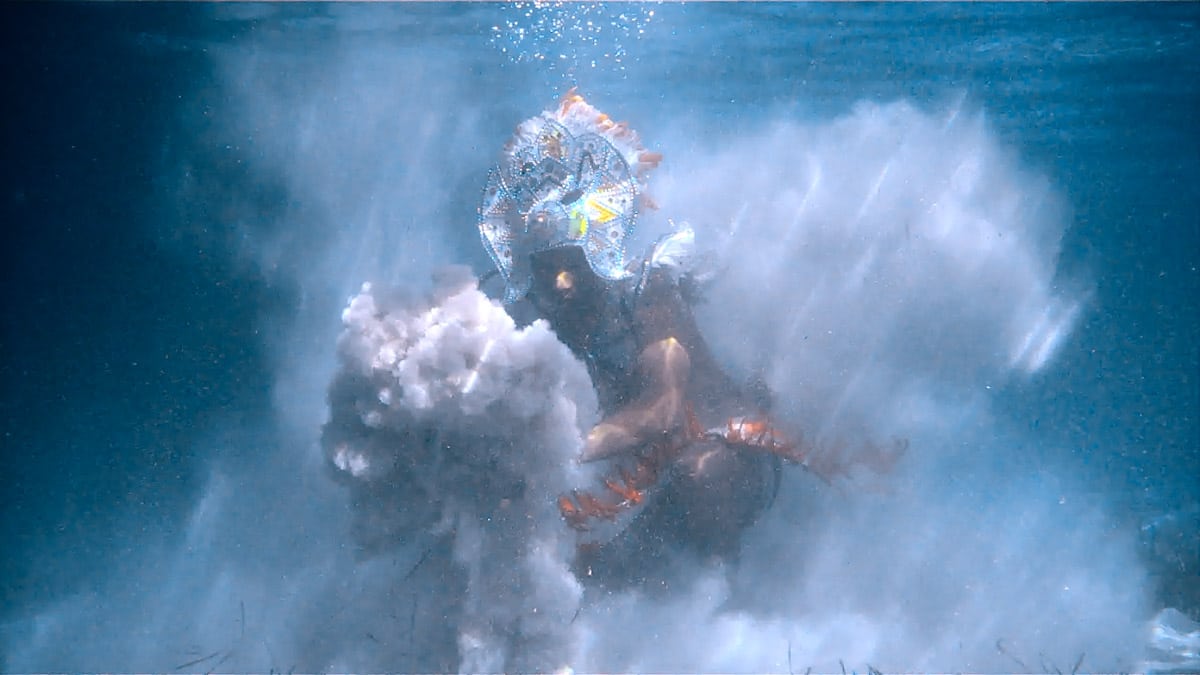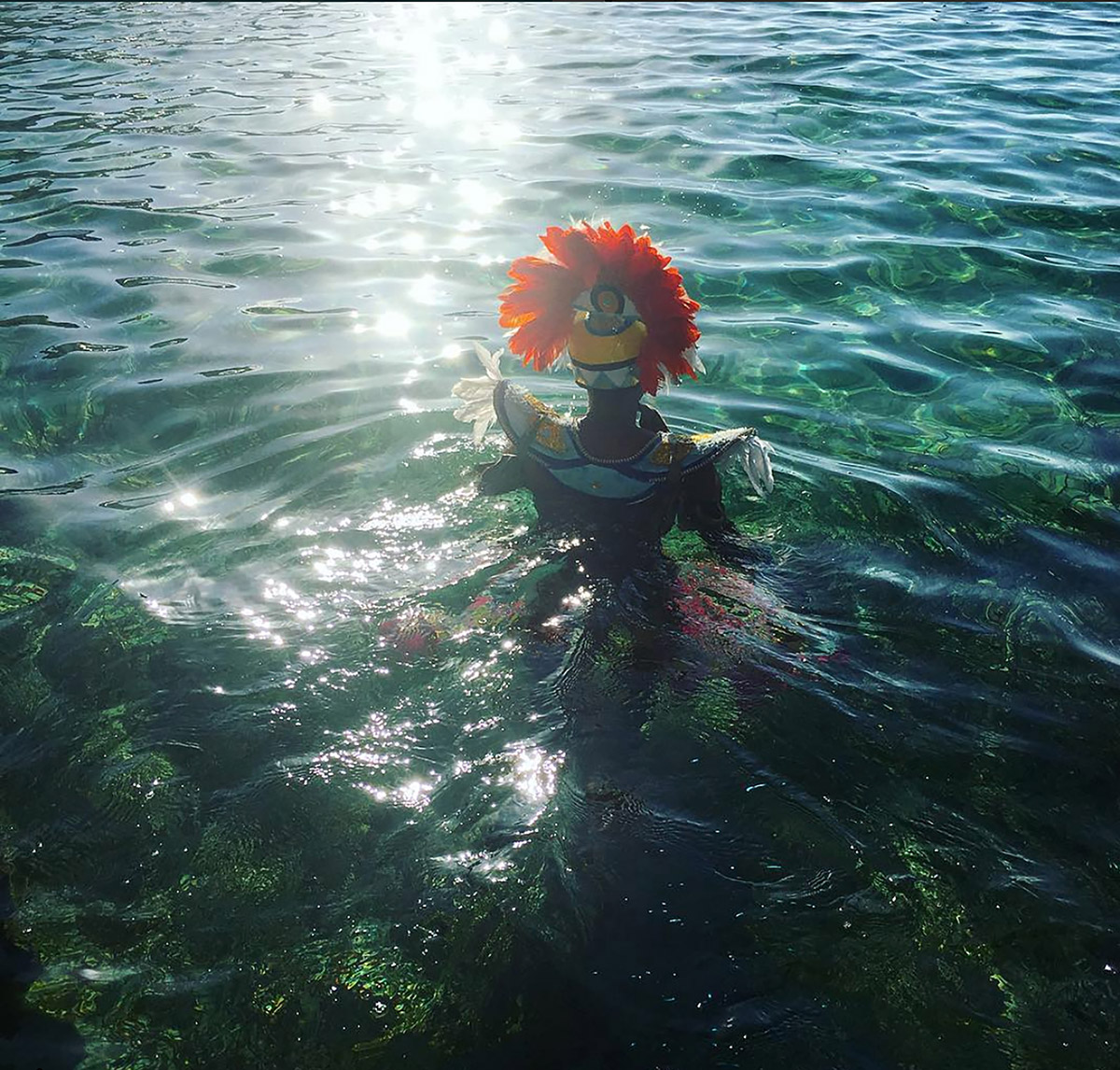
By Natalie Willis.
Forward, onward, digging upward in the sand, together. The 2018 “Double Dutch,” the 7th in the series of paired exhibitions, brings us questions on the future, on climate change, on what it means to govern a chain of 700 islands, and on what it means to lose an island’s culture from lack of infrastructure and intervention. “Digging Upward in the Sand” (2018) by the Plastico Fantastico Collective, stirs up these queries, worries, and troubling presents for us.


“Digging Upward in the Sand” (2018), Plastico Fantastico, single channel video, 29 seconds. Part of the latest Double Dutch, “Hot Water”, a collaboration between Plastico Fantastico and Expo 2020, exploring the aftermath of Hurricane Irma on Ragged Island.
Set against the backdrop of the current dilemma in Ragged Island, with an island nearly decimated, rendered almost uninhabitable, and survivors being forced to choose between exile on-island or exile by leaving home. The climate refugees of Ragged Island bring us not just questions on government, on responsibility, on climate change, but they also bring us worries on how we preserve island cultures when the islands are lost. In “Digging Upward in the Sand” (2018), Plastico Fantastico give us a simple image to consider, but a lot is contained within this short video loop.
We see a young man in a Junkanoo costume, underwater, with a shovel, digging at the sand beneath his feet. Over the duration of the film, the visibility of the Junkanooer becomes more and more obscured with the uprooted sand becoming suspended in the salt water. The fragility of Junkanoo costumes (made entirely of cardboard, paper and glue, very likely to disintegrate when wet) comes to mind, the horror of a rainy Boxing Day or New Years Junkanoo – and the insults hurled toward meteorologists whose forecasts are so crucial to the procession taking place, or not. Sorry Basil!
His costume, over time, would deteriorate in these conditions, as our visibility of his silhouette does. So too, would our islands deteriorate under this level of water. With sustainability in mind, the ““Double Dutch: Hot Water” reminds us that we are in just that – literally hot water with the rising temperature of our oceans, as well as being figuratively in “hot water” because of what those warm seas mean.
As a Small Island Developing State (SIDS) in the Atlantic, the potential sea level rise by 2040 for our currently shallow seas and more shallow elevations would be catastrophic. With some estimates showing 80% of the Bahamian archipelago exists in a low elevation coastal zone – meaning, most of the country is less than a metre above sea level – we could very well be in danger of our islands being submerged, as the Plastico Fantastico’s Junkanooer is. It also important to note that it is not just the matter of our homes and land being inundated, as the film suggests, which is horrifying enough as a thought. Through this deterritorialization we also run the risk of losing much of our archives, both personal and public, and through the loss of material and space, we will lose our culture. Just as the cardboard, glue, and sequins will vanish into the sea, so will our memories tied to our landscape for those low coastal zones.
We ask, when an island’s entire people moves, how can they retain that culture? Some may argue that they do, that much of it is ingrained in our genetics, in other documents, in our speech. But what of the house on the sea with our grandfather’s memories? Memories that he may not have been able to fully share. It should seem obvious in some ways that land is tied to culture, which is in part why we fight over it, protect it, but these questions and ideas get a new and frighteningly clearer focus with the threat of rising tides. Our culture will endure, for a time, until it too becomes covered in salt water and sand and we can no longer distinguish – but we might know it’s presence, and be all the more heartbroken by it.
Rather than live with those ghosts, of culture lost in the changing planet anthropocene, we get a moment to think about a strange conjunction of past, present and future. We think not just about sustainability in terms of having a viable planet in years to come, but also viable conditions for the preservation and continuation of our particular, localised histories and cultures. The word culture itself comes from agriculture and cultivation, and what can we cultivate and nurture with no land to sustain it?
“Hot Water” will close at 5 p.m. this Sunday, October 21st, 2018. .-From noon, however, you can visit this exhibition free of charge as part of our “Free Sundays” initiative for locals and residents at the NAGB so don’t miss your last chance to see this exhibition before we change over for more great programming for you.